Morocco is a land of enchantment and wonder. When you walk around the seaside town of Essaouira you see Morocco come to life. The smells of spices in the souk will stimulate your senses and your appetite. At the epicenter of Moroccan culture is the food – shopping for it, preparing it, and eating it together with friends and family. Recipes are passed down from generation to generation. Go into any of the incredible restaurants and you can get lost in the flavors of a tagine, couscous or pastilles. There is no better way immerse yourself in local life than to learn the secrets of Moroccan cooking – and we did just that in our Essaouira cooking class. There are so many choices, but if you’re wondering what to do in Essaouira you should put a Moroccan cooking class at the top of your list.
We partnered with Essaouira Taste to get a behind the scenes look into how traditional Moroccan dishes are made. At 9:30am we were picked up at our HomeExchange apartment by our instructor Latifa in a petite taxi (actually 2, since we were a party of five altogether). Our first stop this morning was the souk to get our ingredients for our selected dishes – Latifa asked for our preferences and was happy to accommodate them. The souk in the Essaouira medina is small by comparison to the larger cities of Fez and Marrakech, which makes for a much more pleasant experience.
Read more: Traveling in Morocco: the good, the bad and the ugly
Use the interactive map to find vacation rentals and hotels in Essaouira
Through our walk in the souk with Latifa we picked up fresh vegetables, oil and spices. The two most eye opening experiences were going to the baker and the butcher. Upon entering the baker’s workshop there are huge wood-fired ovens and the bakers are rolling out the dough. The bread was delicious and fresh. The kids were in awe watching the bread being made right before their eyes (unfortunately, no photos allowed).
There is an old saying, ‘know where your food comes from’. We entered a small inlet in the souk where we came upon a butcher who was preparing chickens using the traditional Halal method. None of us had ever seen a chicken slaughtered. Our daughter understandably choose not to watch, while our son was intrigued. He found every step interesting from slaughtering, to removing the feathers, to preparing the final parts of the chicken. Seeing the process provided us with a greater appreciation for the animal and the sustenance it provided us.
After collecting our ingredients, Latifa took us to the traditional home of company owner Simo. This setting sets Essaouira Taste apart from other cooking classes – you cook dishes and learn about modern Morocco by spending time with the family that lives in the home. Our kids loved talking with the sons Abdullah and Abdul-Hasan. They had adopted a litter of kittens that were crawling around the apartment. The kids were more interested in playing with the cats than cooking, which allowed us adults to focus more on the cooking process – it was a fortunate distraction, as Moroccan cooking techniques are far more involved and far less kid-friendly than other cuisines we’ve learned to make.
Latifa is a truly a pro; after all, as she explained, the life of a Moroccan woman involves hours every day in the kitchen. She walked us through the menu of chicken tagine with preserved lemons and olives, vegetable pastillas, eggplant salad, carrot salad, zucchini salad, and fruit salad. She also guided us every step of the way providing tips as we prepped the vegetables and showing us techniques we’d never considered – like grating tomatoes the way we’d grate cheese, or leaving a whole eggplant sitting casually on an open flame until it was blackened beyond recognition. It was really fascinating to learn the traditional method of cooking a tagine with hot coals, and we were impressed by the level of attention required to make it tasty and moist.
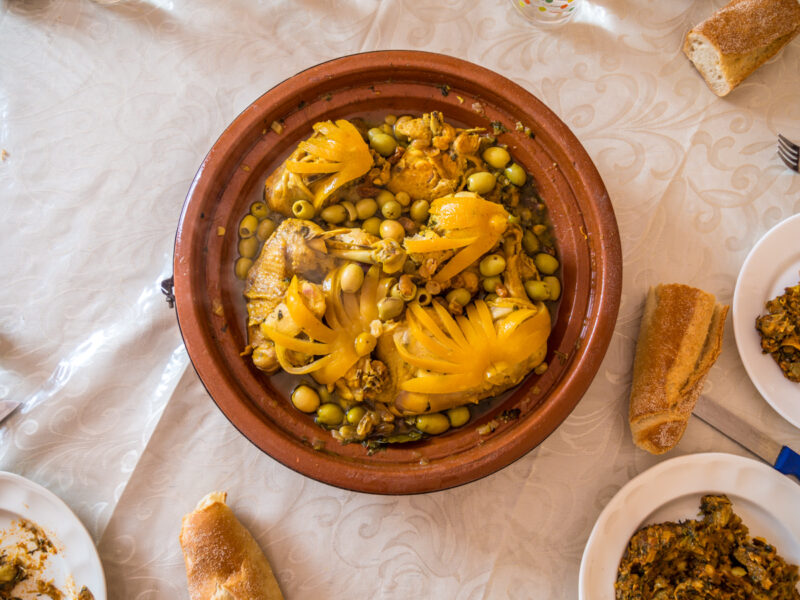
Our favorite part of the cooking class was making the vegetable pastillas. We first chopped and sautéed the zucchini, bell pepper and carrots separately. Then stuffed the filling into the phyllo dough and made them into triangles. Finally, we fried the pastillas in the pan until they were golden brown.
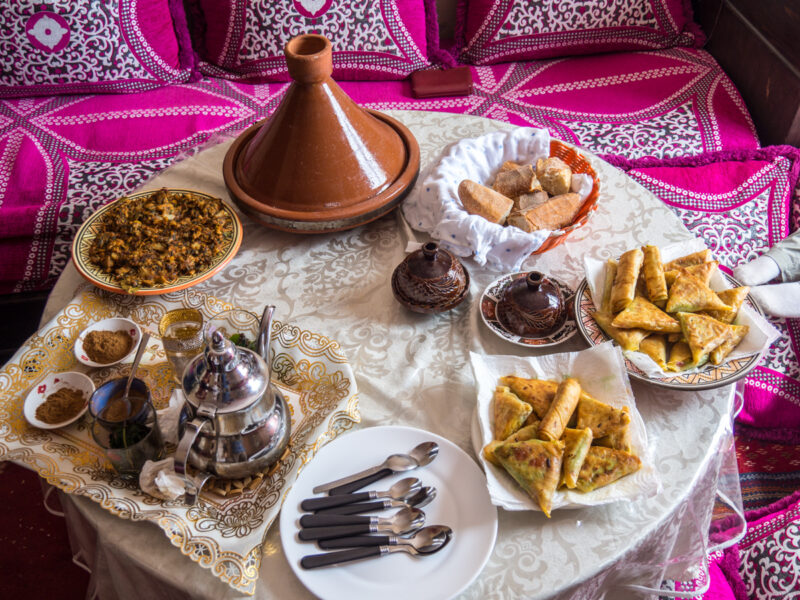
After we completed all of the dishes it was time to eat. We were hungry after four hours of shopping and cooking. The smell in the apartment was delightful and the food was incredible. We ate so much food that at the end of the class at 3:00pm we were ready for a nap. Latifa provided us with the recipes at the end of the class so we can bring Moroccan cuisine into our home. We look forward to trying them on our own once we have a full kitchen again!
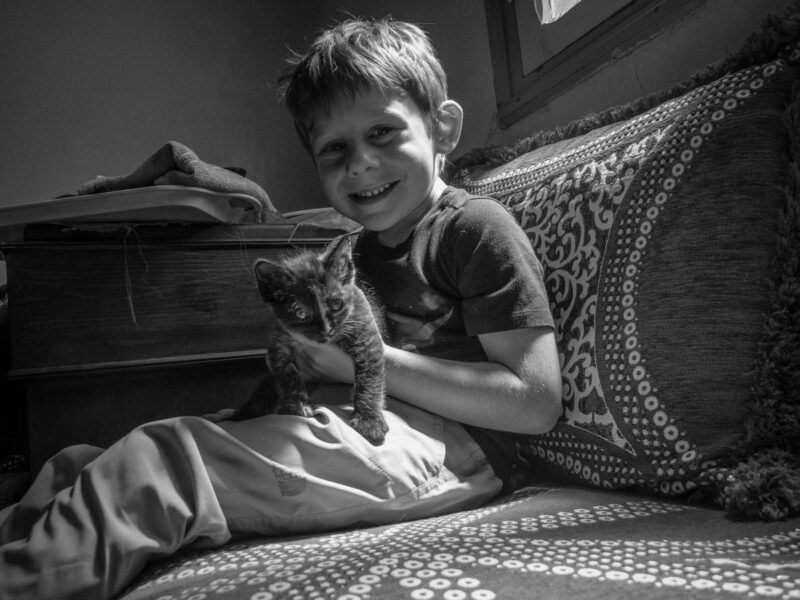
Need to book your Morocco hotels and riads? Check out these easy tips to save more on every booking.
Plan your trip to Morocco
We have plenty of resources here on The Family Voyage to help you start planning your trip to Morocco! Read these next:
–Complete Essaouira travel guide
–Traveling in Morocco: the good, the bad and the ugly
–Why you should visit Morocco in spring
–Morocco with kids bucket list
Need more help planning? Pick up one of these great guide books:
Want to get more helpful travel tips like this? Sign up for our email list!
We were hosted by Essaouira taste for this cooking class; all opinions are our own.
Planning your trip? Pin it for later!
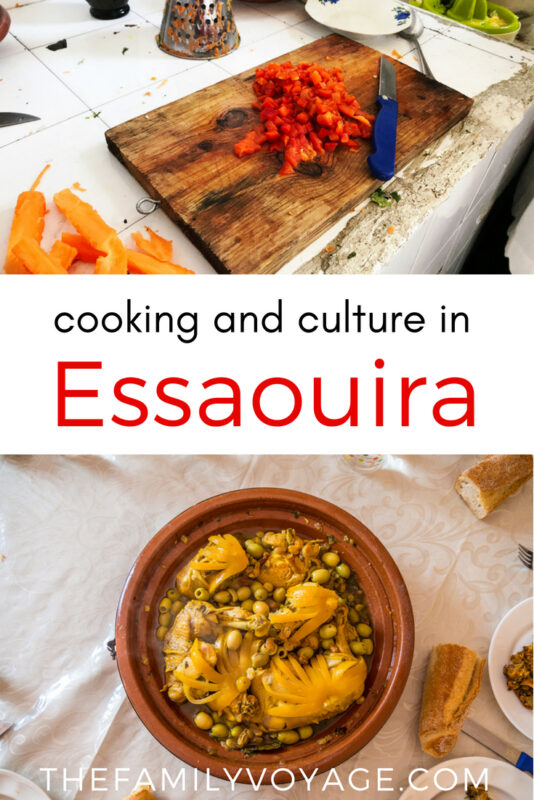

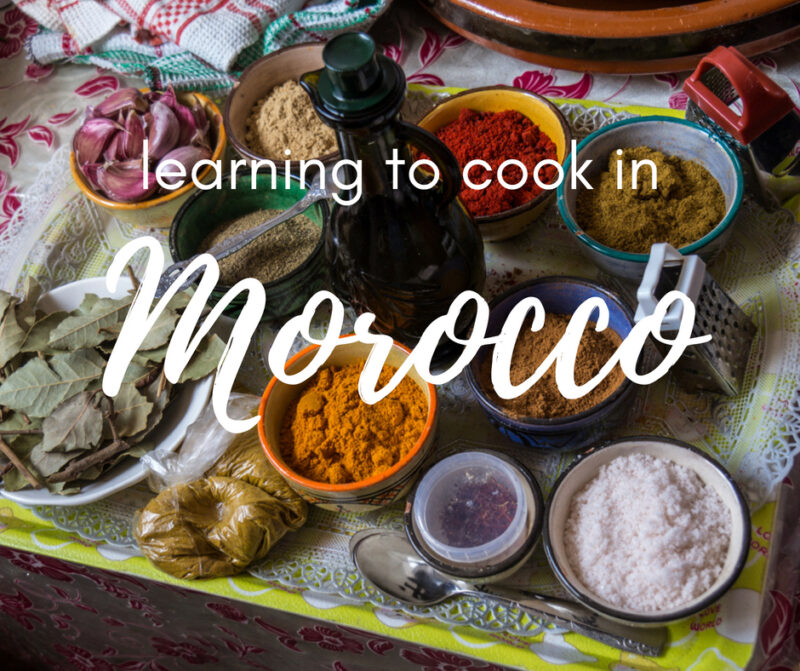
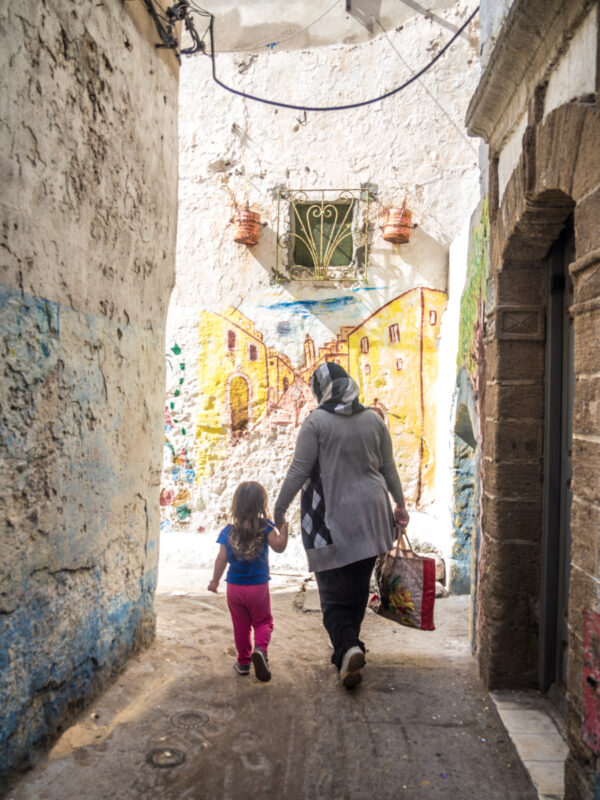
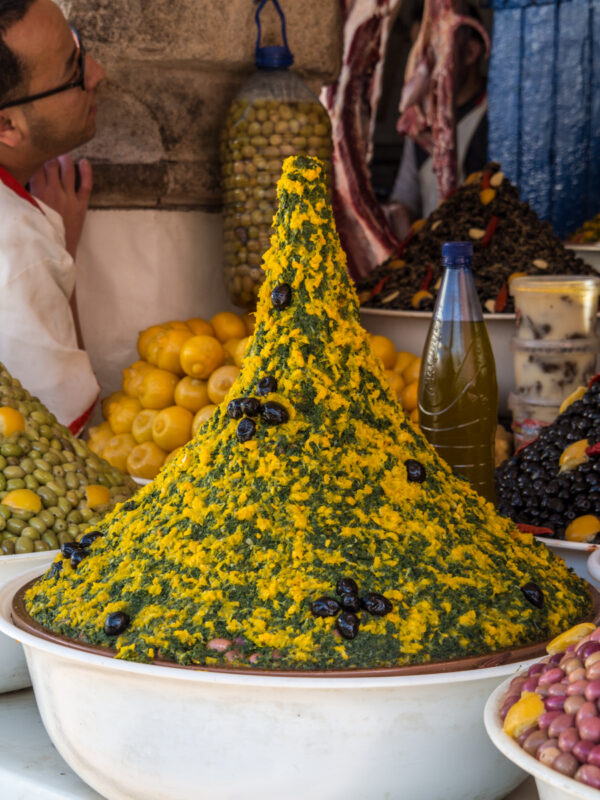

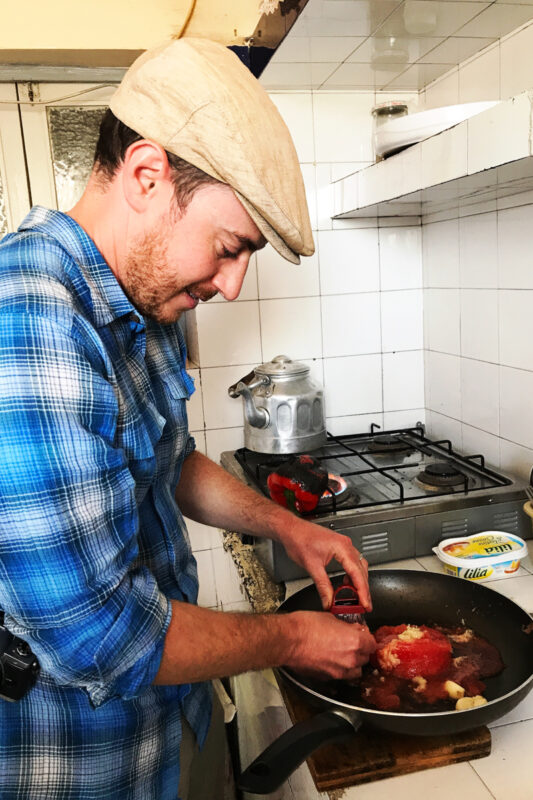
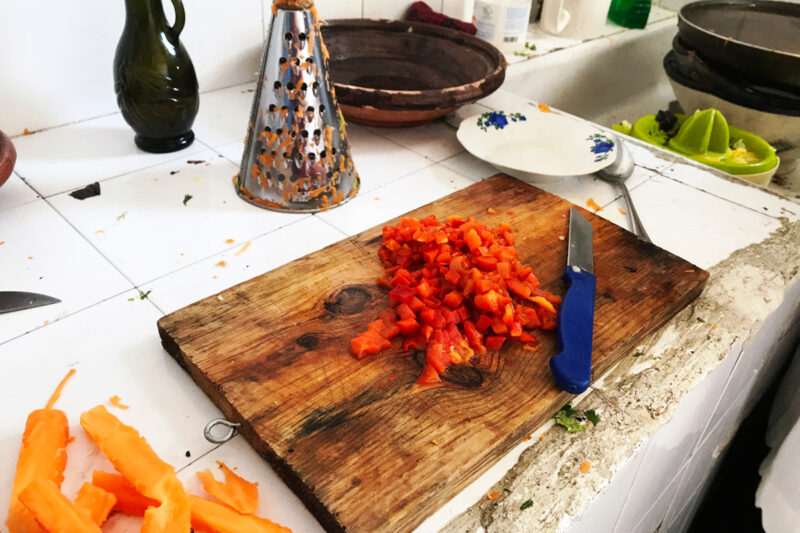
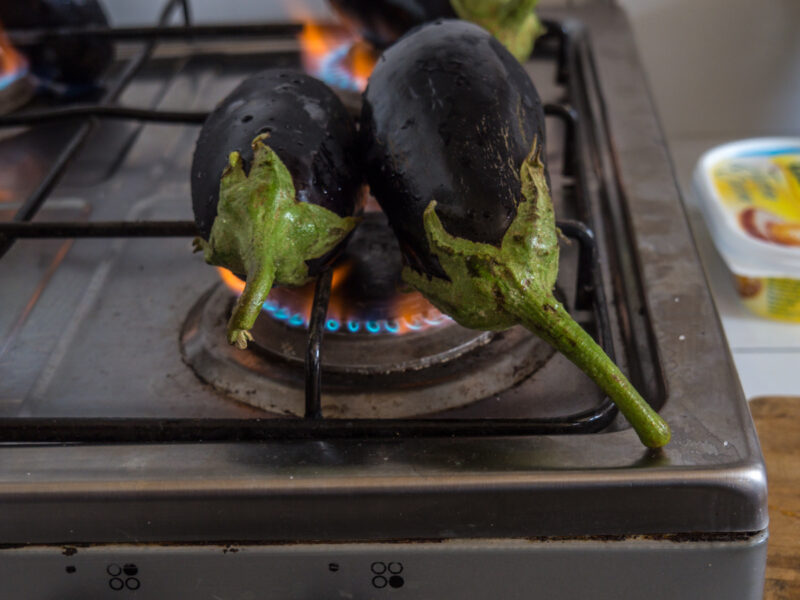


How fun! I almost felt like I was in the kitchen!